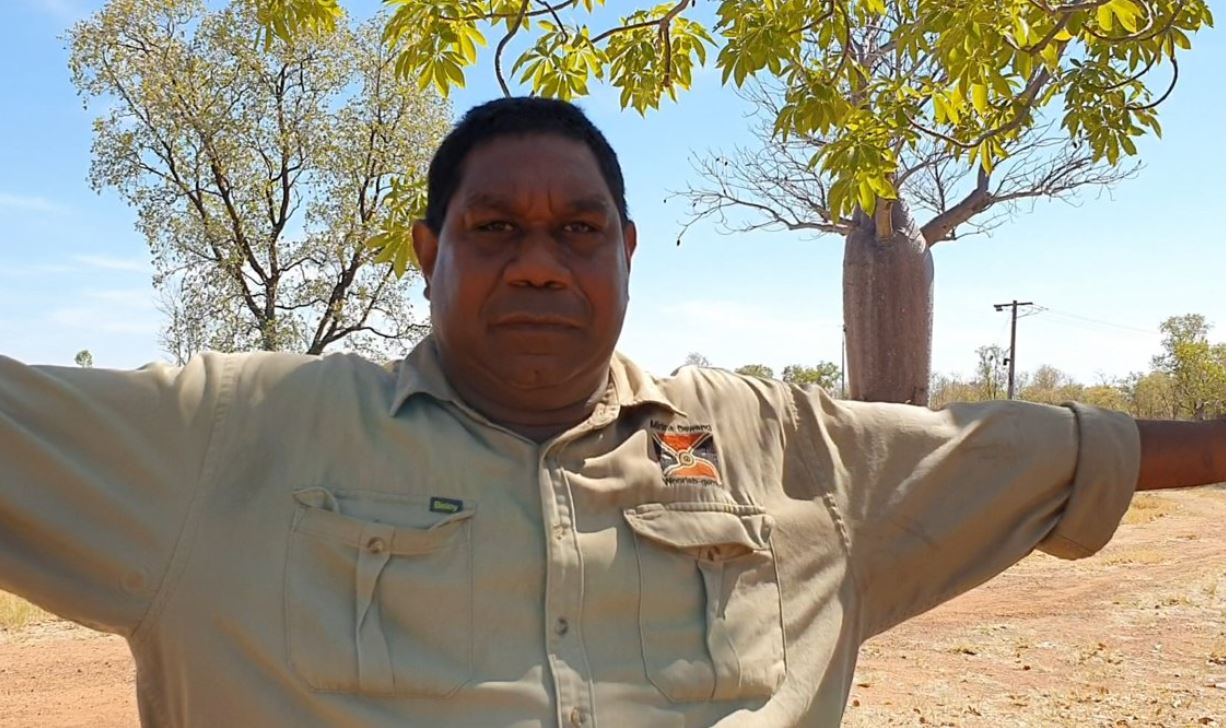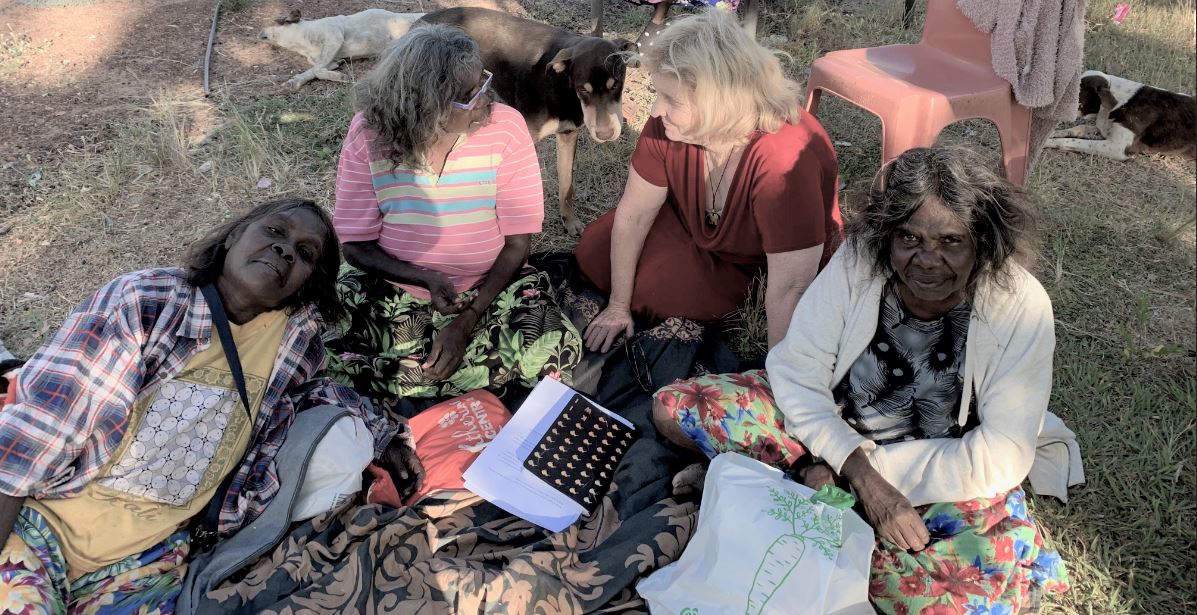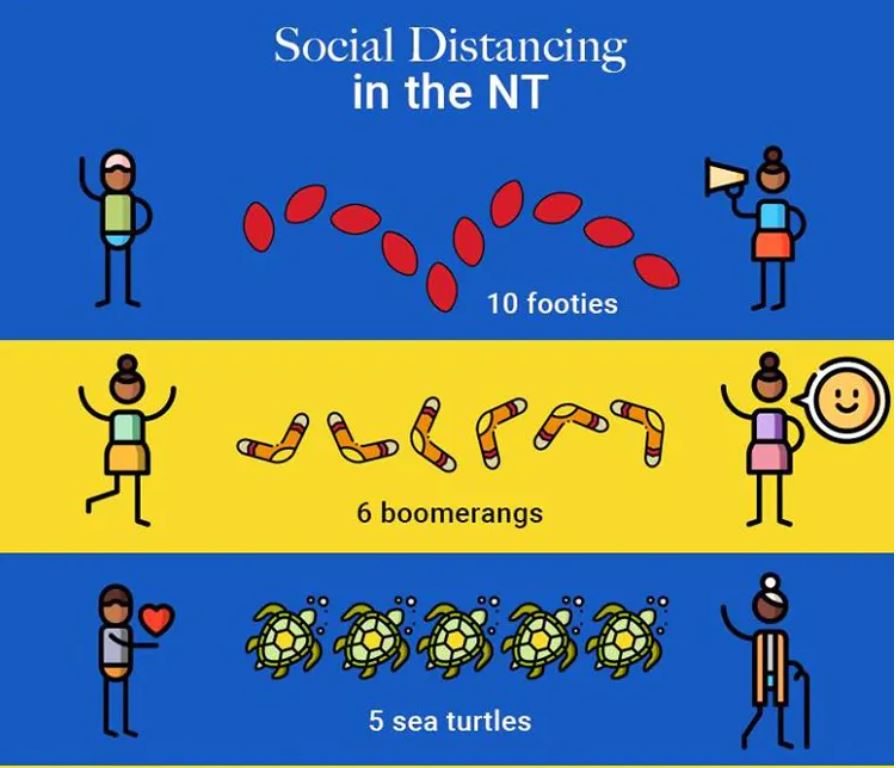
While struggling with social isolation, family separation and supply shortages, the COVID-19 pandemic presents new opportunities to improve conditions or ‘close the gap’ for Aboriginal Australians, experts say in The Conversation today.
Commentary from members of the Barunga, Beswick, Manyallaluk and Booroloola Indigenous communities in the Northern Territory casts light on a wide range of initiatives to keep remote families safe – including many designed to be compatible with “everyday cultural lifeways”, say Flinders University’s Professor Claire Smith and Professor Amanda Kearney and other researchers in the Friday Essay: ‘Voices from the bush – how the lockdown affects remote Indigenous communities differently‘.
Feedback from the communities includes:
- The lockdown has forced some mothers and newborns to be quarantined from returning to country
- Families in Borroloola have called for imprisoned friends and relatives to be returned home during the pandemic, to ensure they are safe and away from the threat of virus infection in prison.
- Rapid responses has helped to bolster trust in government and Aboriginal organisations.
- Going bush has had the added effect of strengthening families.

“COVID-19 is the first global pandemic caused by a coronavirus. It may not be the last. This crisis presents a unique opportunity to learn what success looks like in Aboriginal remote community health,” the article says.
“The United Nations has called for all Member States to include the specific needs and priorities of Indigenous peoples in COVID-19 response planning. Population-based approaches are logical scientific steps to prevent the spread of a virus.
“However, they need to be compatible with the everyday cultural lifeways of remote Aboriginal communities.
“The COVID-19 pandemic is a watershed moment. Old and enduring problems can be reassessed. The current crisis can be mined for fresh, action-oriented perspectives of Aboriginal people’s needs in preventative health care.

“This time of calamitous infection and threat of illness is not foreign to remote Aboriginal communities and culture bearers. Many have lived through previous flu epidemics and live with the scourge of chronic conditions.
“While COVID-19 is presented as a health and an economic problem, it is also a social and a cultural challenge.
“Our research calls for attention to understanding Aboriginal people’s knowledge of the pandemic and their vulnerability and strengths at this time.
“Remote communities are full of intellectuals and people coming to terms with a challenge we all face. Yet they are making sense of this global crisis in their own local and culturally nuanced ways.”
They conclude that this community wisdom and cultural strengths are “powerful starting points for effective and empowering health promotion”.
“We need to identify local innovation and community solutions for dealing with COVID-19, and harness their drivers and logic.
“We need to develop culturally-driven, community-specific tools and strategies that can help to future-proof remote Aboriginal communities from pandemics.”
Read the Friday essay, ‘Voices from the bush – how the lockdown affects remote Indigenous communities differently‘ in full in The Conversation (15 May 2020), by Claire Smith, Jordan Ralph, Gary Jackson, Anna Kotarba, Jasmine Willika, Amanda Kearney, Christopher Wilson and Udoy Saikia (all Flinders University), and Kellie Pollard and Julian Grant (Charles Sturt University).

